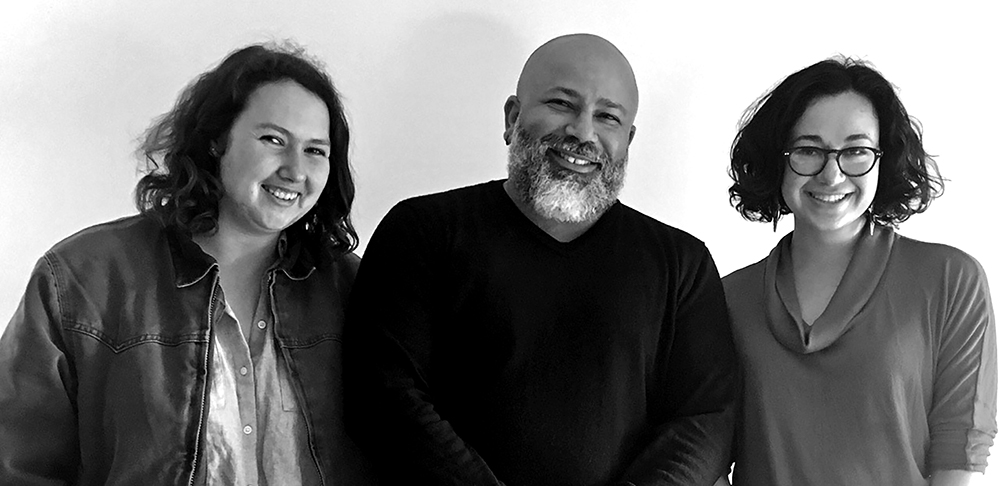THE CYBORG LIFE: HEALTHCARE AND RACISM

The Cyborg Team.’ That’s what Sonya Sternlieb ’18 and I call our work with Professor Hatch,” says Julia Gordon ’18 (above left), a Science in Society Program and biology double major. Mentored by Hatch, Gordon is writing an honors thesis and, with Sternlieb (right), an American studies and biology major, has collaborated on two papers with their professor on the artificial pancreas.
“Both publications focus on the device as the site for exploring humans’ relationship with technology—specifically that external medical devices have implications for the way humans control and conceptualize their disease and take agency over their bodies,” Gordon explains.
Her thesis also follows this line of inquiry on biomedical “cyborgs”: What does it mean for humans to rely on a medical or technological druge, implant or device—such as an insulin pump—to maintain health? This exploration (“my passion for the past year”) began in Hatch’s class, reading Donna Haraway’s The Cyborg Manifesto. Gordon explains: “Cyborgs are also a metaphor for breaking down binaries, such as humans/machines, culture/nature, material/nonmaterial”
These dualities are actually more like a spectrum, Gordon says, and her work with Hatch explores the implications of transforming a health care based on a doctor-patient conversation to one of decision-making based on numbers that register on an electronic device. Noting that the artificial pancreas—an insulin pump attached to a glucose sensor, communicating with each other on a continuous basis—can remove much of the daily effort of self-care for a diabetic, she asks us to consider a caveat. “The data output by techno systems can’t capture the totality of the lived experience,” she says, so she is exploring the wider implications of giving up personal control to “smart” machines.
Gordon initially met Hatch when she was a sophomore and signed up for his class, Anti-Psychiatry. During an office-hours conference, Gordon discovered that her professor has type I diabetes, like she does. Now: “We have fruitful discussions about our personal experiences with a chronic condition, and we’re able to frame our experience within these broader critical contexts,” she says.
A native of Los Angeles with familial roots on the East Coast, Gordon had initially chosen Wesleyan for the strong science research opportunities with faculty. Her goal had been medical school. After working with Hatch, she’s revised this: Next on her agenda is work within the health industry, followed by a doctorate in science and technology studies or medical sociology.
Gordon calls her work with Hatch transformative: “The idea of studying these processes from a critical perspective is what fascinated me. I’m a musician, also, so the creative aspect—integrating the personal narrative and interpersonal conversations within interdisciplinary backgrounds—has been compelling.”
As for her mentor: “He is first and foremost a humanitarian. People have great respect for him, but he doesn’t create an intimidating power dynamic: he makes it clear that he values your opinions, even in his areas of expertise. His core values—commitment to social justice and care for individual people—are at the heart of his work. In the classroom, he’s a brilliant integrator, connecting what one student is saying with others’ comments and moving us all together within broader frameworks.
“He creates an environment in which it’s very comfortable for everybody to explore their ideas.”
